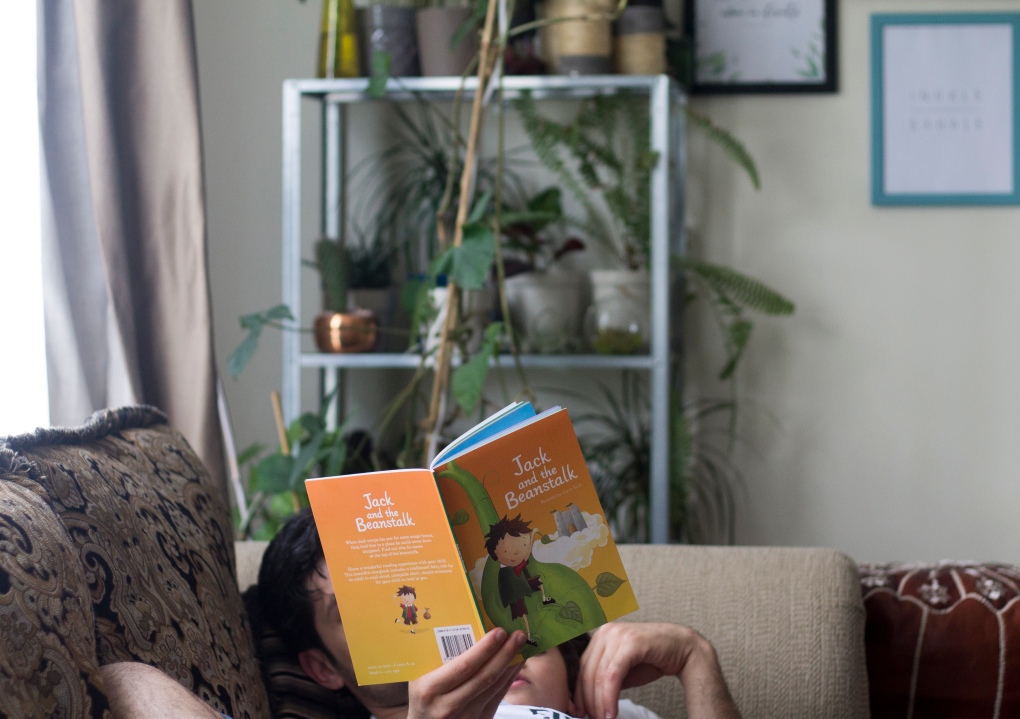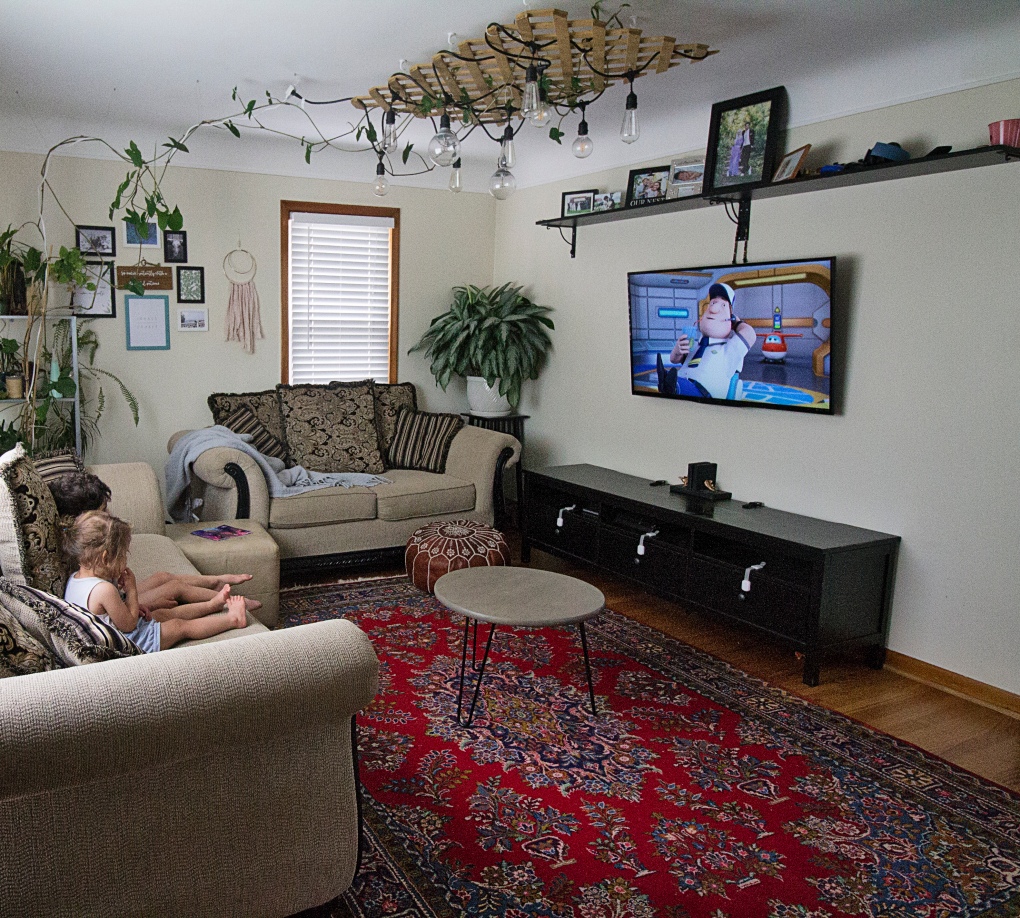Before we had our first child, we were super determined to delay screen time and technology use for as long as possible, forever even (okay realistically I was aiming for 4-5 years of age). I had seen first hand the negative effects of children having access to phones and tablets at a young age and I wanted nothing to do with it. And while we were mostly successful, we did come to have a change of heart…which is at the heart of this post. This post is not about the positive or negative effects of technology on children because there is plenty of literature already out there that you can read on this subject. Instead, this post wants to inspire dialogue about finding a balance, if there can be such a thing.

Our son did not watch any TV for the first two years of his life (save the time he was on a nebulizer for an asthmatic cough and the only way he would sit down was with some baby songs chromecasted onto the television). I thought I would wait even longer until I came across the following article in The Atlantic entitled Parents: Reject Technology Shame. I’ve linked the full article for you to read yourself but the main gist is that there are three types of parents: 1) digital limiters, 2) digital enablers, and 3) digital mentors. What stood out as most alarming in the article was this:
“In a survey that asked parents about where their kids get into trouble online, I found that among school-aged kids, children of limiters who are most likely to engage in problematic behavior: They’re twice as likely as the children of mentors to access porn, or to post rude or hostile comments online; they’re also three times as likely to go online and impersonate a classmate, peer, or adult.”
Reading it I thought, “well of course I want to be a mentor!” I mean, if technology is already a big part of our lives then doesn’t it make more sense to teach children how to use it responsibly rather than just saying no and letting them get into trouble on their own later on? For us it seemed like a no-brainer. Of course that didn’t mean we opened the floodgates on screen time and technology use. Also, while the article was inspiring in opening the conversation on digital mentorship, it didn’t offer much in the way of guidelines. A digital mentor was defined generally as those who “take an active role in guiding their kids onto the Internet.” But internet is only one side of digital media use. And what does an “active guiding role” look like? I thought long and hard about this question and so I came up with 3 ways we can be a digital mentor to young children when it comes to screen-time.

- Set parameters by being a good role model. Being a digital mentor doesn’t mean there aren’t ANY limits. Reflect on your own values and how technology fits in with them and you’ll likely arrive at the conclusion that technology has its time, place, and benefits. Now define what those are. Think that phones or tablets don’t belong on the dinner table? Make sure they’re not in sight when dinner time rolls around. Do you want screen-time/technology use to be an educational and wholesome experience? Choose programming that reflect those values. We find it helpful to think about how we use our technology in front our children and what they will learn from that.
- Be present and engaged. When I think of mentorship, I think of a guiding presence. Often times when parents allow screen time or technology use, it is as a reprieve so that the children can be preoccupied as adults get their stuff done. It doesn’t have to be that way. Try to plan screen time and technology use so that you are physically present and able to reinforce what they are learning and get them to reflect on what they are experiencing. The research shows that it’s far more effective than just having your child sit and watch/play on their own.
- Opt for Ad-Free programming. If there’s anything that digital mentorship is all about, it’s about embracing technology to put yourself in the driver’s seat. If we are going to be totally honest then advertisements and commercials are major obstacles to that control. For that reason, try to stick to applications and programs that are free of advertisements as not only are many of them questionably appropriate but they instill an insatiable consumerist impulse at such a young age which is totally unnecessary.

Living in a digital age presents many challenges and we are working to be better digital mentors each and every day. There’s no such thing as perfect and how we interact with technology will continue to evolve. These are just three simple ideas for how we approach technology use that we hope you’ll find helpful if you’re apprehensive about introducing technology and screen time to young children. How do you feel about technology and screen-time? If you have any ideas on how to be a good digital mentor, please share in the comments below. And as always, if you found this post helpful please follow us and share



